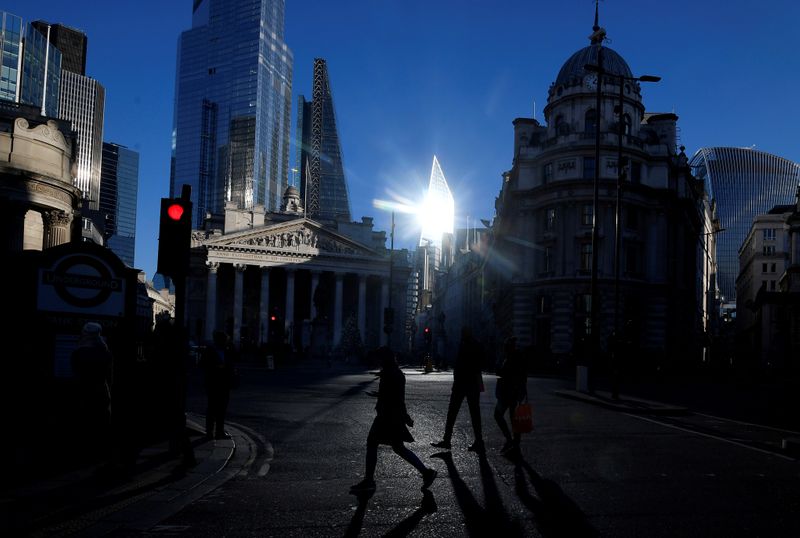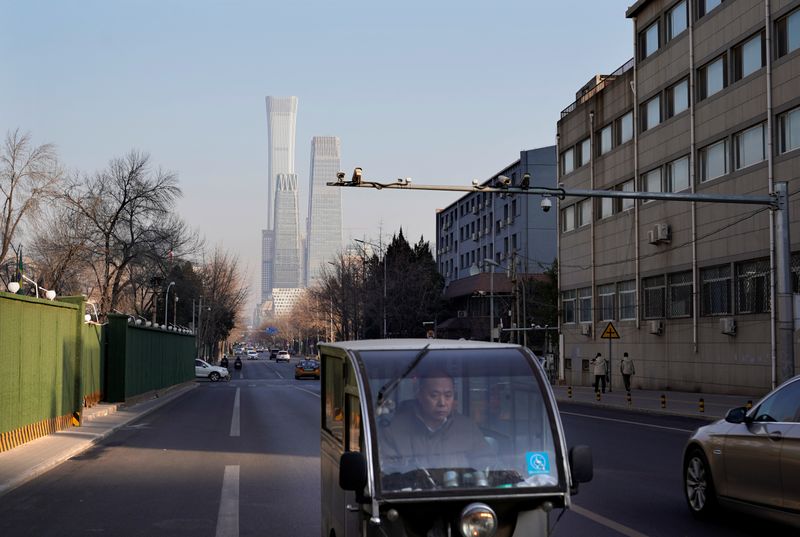
FILE PHOTO: Workers cross the road in the City of London, near the Royal Exchange and Bank of England, London, Britain, December 2, 2019. REUTERS/Toby Melville/File Photo
January 3, 2020
By Andy Bruce and William Schomberg
LONDON (Reuters) – British consumers increased their borrowing in November at the slowest rate in more than five years and the construction industry’s decline worsened in December, figures showed on Friday, adding to signs of an economy that stalled late last year.
The Bank of England said growth in unsecured consumer lending slowed to 5.7% in the 12 months to November – ahead of last month’s election – the smallest increase since June 2014.
Credit card repayments exceeded borrowing for the first time since July 2013.
Household spending has helped Britain’s economy through its Brexit slowdown. But some BoE officials are concerned that record levels of employment and a recovery in wage growth might be on the turn, raising questions about consumer spending ahead.
Investors are watching for signs of the impact of Prime Minister Boris Johnson’s emphatic election victory on Dec. 12. For now, most gauges of the economy look downbeat.
The construction industry’s downturn deepened in December, driven by the sharpest drop in civil engineering activity since 2009, an IHS Markit/CIPS survey showed.
“Construction companies will … be hoping that the government’s planned sharp stepping up of investment in infrastructure feeds through as quickly as possible to boost activity,” said economist Howard Archer from the EY ITEM Club consultancy.
While the outlook for 2020 looks uncertain amid a stuttering global economy and rising tensions in the Middle East, some of the BoE data hinted at better times ahead for Britain, economist Samuel Tombs from Pantheon Macroeconomics consultancy said.
“November’s monetary indicators imply that GDP growth likely will regain some momentum in the first half of this year,” he said, citing a rise in the money supply of households.
The BoE data chimed with other signs that the housing market is stabilising after slowing through most of 2019.
The number of mortgages approved for house purchase edged up to 64,994 in November from 64,662 in October, compared with the consensus forecast of 64,450 in a Reuters poll of economists.
British house price growth has slowed to around 1% to 2%, with prices falling in London and some neighbouring areas.
Earlier on Friday, lender Nationwide said house prices rose in annual terms by more than 1% for the first time in more than 12 months in December, but uncertainty about Brexit was likely to weigh on the market again in 2020.
(Editing by Larry King)

